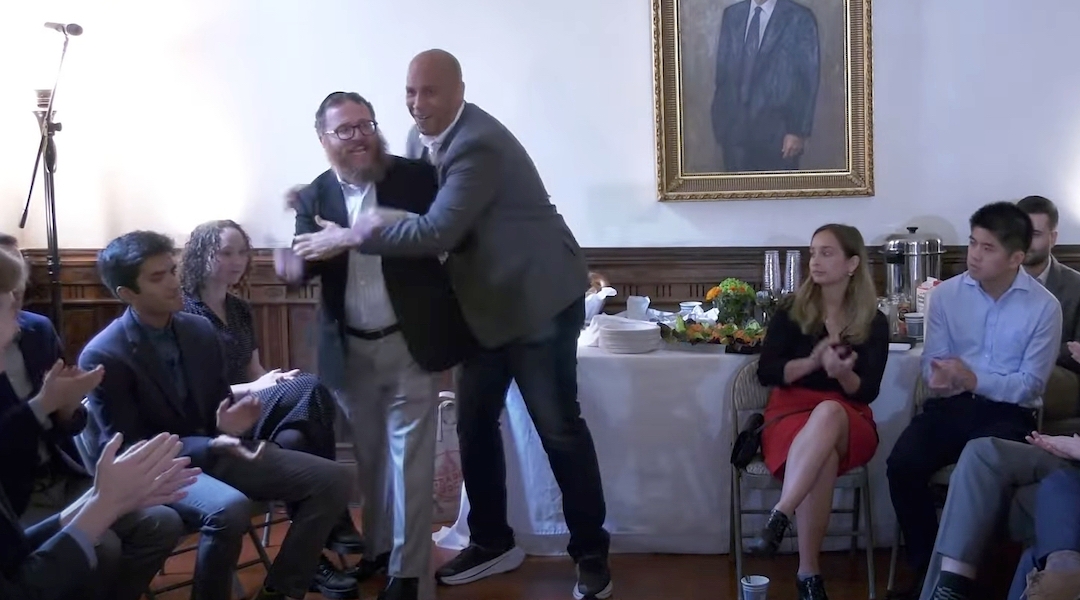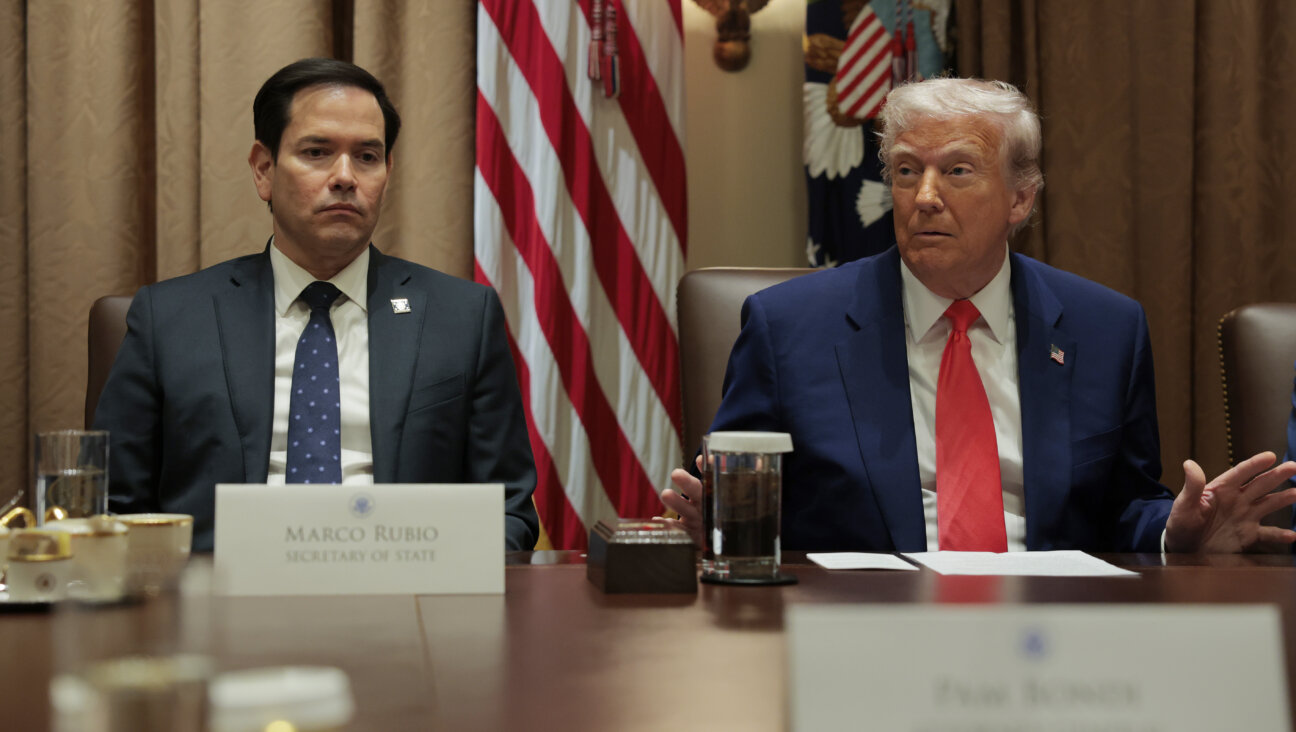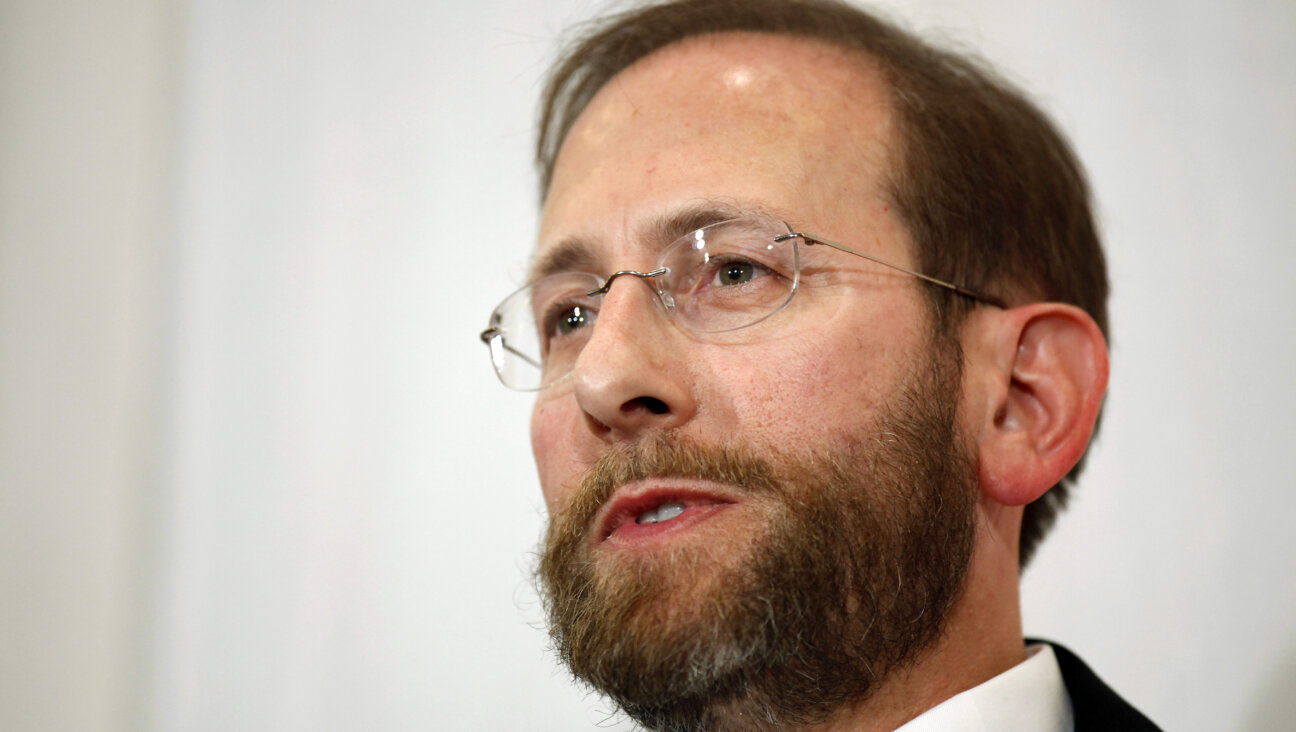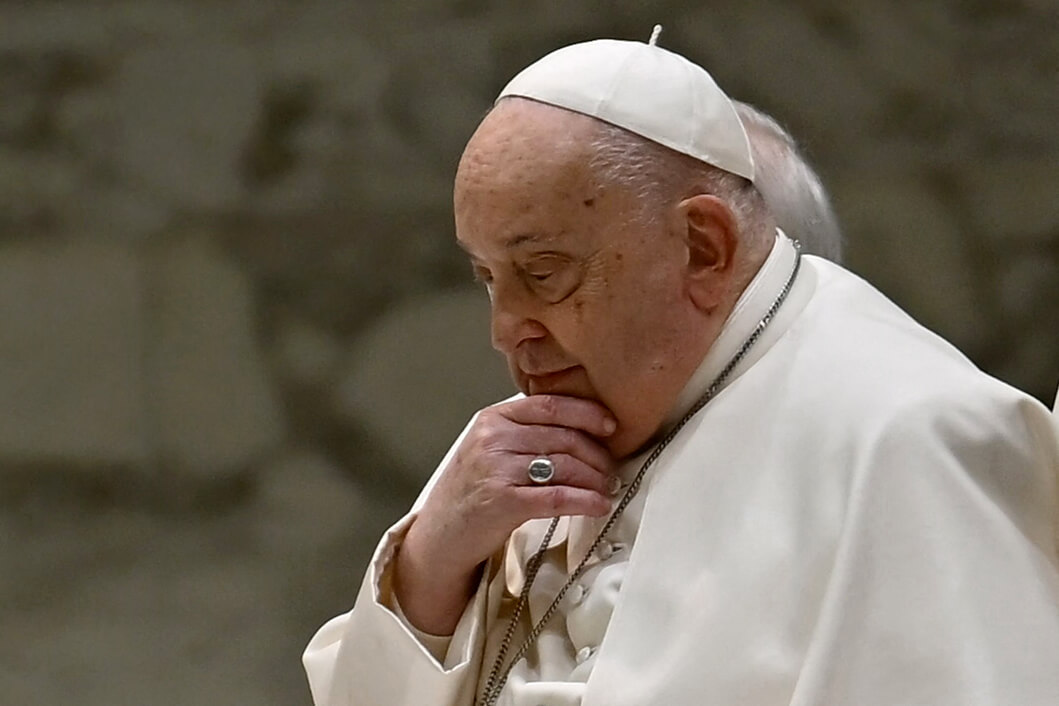Argentina Ripped For Coddling Iran In Bombing Case
BUENOS AIRES — After promising to throw its full weight behind the investigation of the 1994 bombing of the AMIA Jewish community center, Argentina’s new government is now under fire from Jewish groups that say it appears unwilling to confront Iran, the country suspected of responsibility for the attack.
The unexpected arrest by British authorities last month of an indicted suspect in the case, former Iranian ambassador to Argentina Hade Soleimanpour, provided an unprecedented test of Argentina’s willingness to confront Tehran.
Iran, which denies involvement in the attack, has denounced the arrest in the strongest terms, recalling its ambassador to London and threatening to break off cultural and economic relations with Argentina.
The government of Argentina’s newly elected president, Nestor Kirchner, has responded by scrambling to avoid antagonizing Tehran, receiving an Iranian delegation to discuss the matter and suggesting that the entire case be referred to an international tribunal. At the same time, Buenos Aires has told Jewish groups and Jerusalem that it is determined to bring Soleimanpour to Argentina, and is merely exploring the best way to achieve that, given the diplomatic aspects of the affair.
“After the arrest and very harsh words from Iran, we had to make a decision,” said Eduardo Valdes, chief of staff to Foreign Minister Rafael Bielsa and a key actor in the deliberations on how to handle the matter. “If you only think of dignity, Argentina would have had to cut diplomatic relations with Iran. But we also need to continue with Iran and so we decided that we would try to get them to be involved in the investigation.”
While the case’s investigative judge, Juan José Galeano, who issued the initial warrant for Soleimanpour’s arrest, was working on an extradition request that must be transmitted to a British judge before September 20, an Iranian delegation came to Buenos Aires to meet the judge and Argentinean officials.
At the same time, Argentina’s foreign minister undercut Galeano’s drive to prosecute Soleimanpour, proposing instead the creation of an international tribunal for the case like the one created to judge Libyan officials for the 1989 bombing of Pan Am flight 103 over the Scottish town of Lockerbie.
This infuriated the country’s main Jewish groups, which accused the government of coddling Tehran and seeking a compromise after announcing with great fanfare that it would leave no stone unturned in pursuit of the perpetrators of the attack, which killed 85 people. Kirchner’s government had previously earned their praise two months ago by announcing that it would open the archives of Argentina’s intelligence agency, known as SIDE, pertaining to the case and have its operatives testify in public.
“It now seems that the gestures of Kirchner were just publicity stunts,” said Miguel Bronfman, a lawyer for AMIA, a Spanish acronym for the Jewish Mutual Association of Argentina. “They say this is a government priority, we are opening the SIDE archives, etc. But when Soleimanpour is arrested, they say this is just the judge’s problem, then they come up with the idea of an international tribunal.”
But Valdes said that the government was fully committed to the investigation and that it was not avoiding its responsibilities. In addition, he said, the Iranians had agreed to participate in the judicial process by appointing a local lawyer who would give them access to court documents. An Argentinean diplomat closely involved in the discussions with the Iranians said the Iranian delegation had visited some 15 law offices in Buenos Aires.
The diplomat said that Argentina was consulting with London and Washington to craft its position, an indication that Buenos Aires does not want to confront Tehran on its own.
The extradition process could take some time, observers said, pointing to the case of former Chilean strongman Augusto Pinochet, who remained in legal limbo for more than a year in London following a Spanish extradition request.
After the British judge renders a verdict, the last word on the extradition belongs to the British Foreign Office. In the meantime, Soleimanpour has been ordered to remain in jail.
It remains an open question whether the information from intelligence agencies that form the bulk of Galeano’s case against Soleimanpour will be accepted as legally valid evidence by a British judge.
One allegation, which is based on the testimonies of several Iranian defectors, is that Soleimanpour attended an August 13, 1993 meeting at the Iranian Security Ministry at which the decision to bomb the AMIA was taken. The meeting was allegedly headed by Iran’s supreme leader, Ali Khamenei, and then-intelligence minister Ali Fallahian. Also allegedly participating was Mohsen Rabbani, who was at the time a cleric in a Shiite mosque in Buenos Aires and was subsequently named cultural attaché to the Iranian Embassy in Buenos Aires.
Soleimanpour and Rabbani then allegedly coordinated the attack that was carried out by Hezbollah operatives, according to a March 2003 indictment from Galeano. The judge also issued arrest warrants for Rabbani and Fallahian.
There remains a mystery about Soleimanpour’s arrest that could provide another explanation about Tehran’s concern about the case: When arrested he may have been in the middle of defecting and providing information to Britain.
Despite his past as an ambassador and his alleged links to terror activities, he was granted a student visa by the British authorities. In addition, an Iranian newspaper reported that he had been questioned three times by British security services prior to his arrest — a report several Argentinean and European sources believe to be true.
Soleimanpour apparently did not seek diplomatic protection from the Iranian Embassy, nor did the embassy apparently inquire about him after this alleged questioning. Meanwhile, Iranian authorities had known since March that Galeano was preparing an arrest warrant and attempting to locate Soleimanpour, and they apparently did not bother to attempt to remove him from the country.
“It could well be that this is because he had decided not to come back to Iran,” a well-placed source said. “And this could be a big worry for Tehran.”
The Forward is free to read, but it isn’t free to produce

I hope you appreciated this article. Before you go, I’d like to ask you to please support the Forward.
Now more than ever, American Jews need independent news they can trust, with reporting driven by truth, not ideology. We serve you, not any ideological agenda.
At a time when other newsrooms are closing or cutting back, the Forward has removed its paywall and invested additional resources to report on the ground from Israel and around the U.S. on the impact of the war, rising antisemitism and polarized discourse.
This is a great time to support independent Jewish journalism you rely on. Make a gift today!
— Rachel Fishman Feddersen, Publisher and CEO
Support our mission to tell the Jewish story fully and fairly.
Most Popular
- 1

Opinion The dangerous Nazi legend behind Trump’s ruthless grab for power
- 2

Opinion I first met Netanyahu in 1988. Here’s how he became the most destructive leader in Israel’s history.
- 3

News Who is Alan Garber, the Jewish Harvard president who stood up to Trump over antisemitism?
- 4
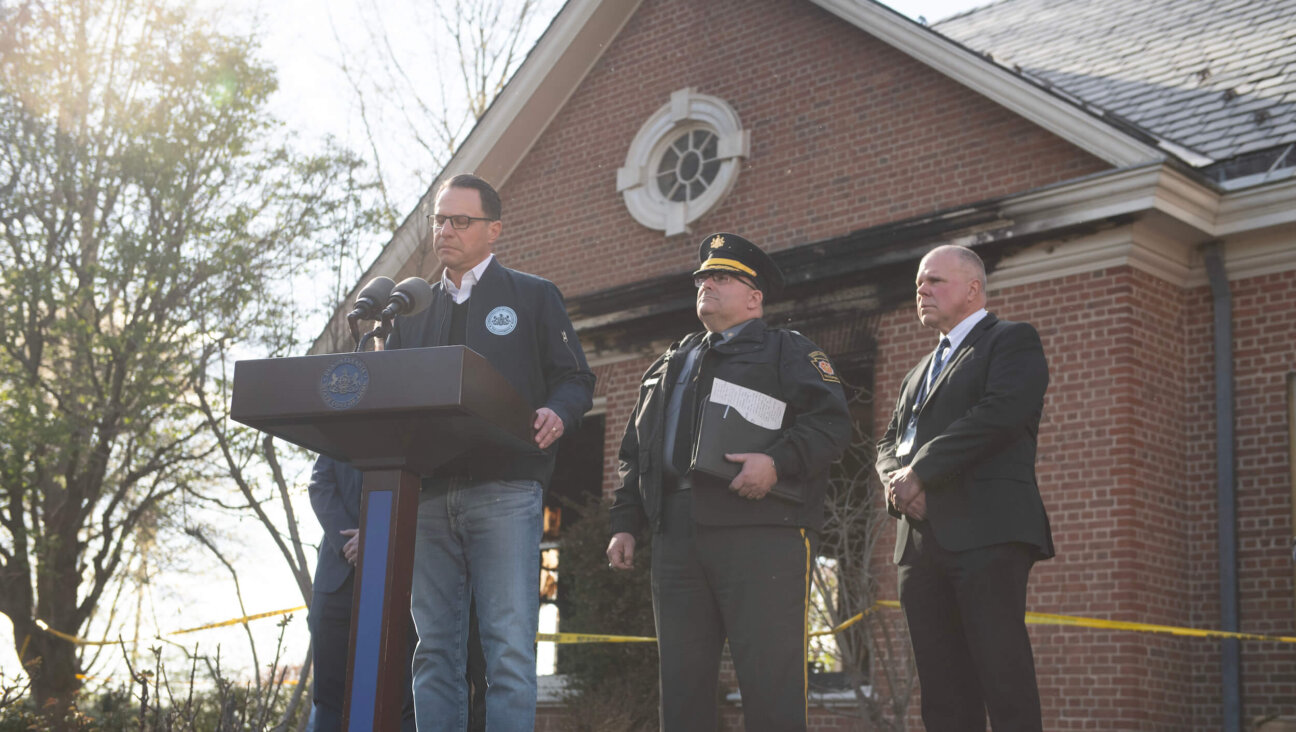
Opinion Yes, the attack on Gov. Shapiro was antisemitic. Here’s what the left should learn from it
In Case You Missed It
-
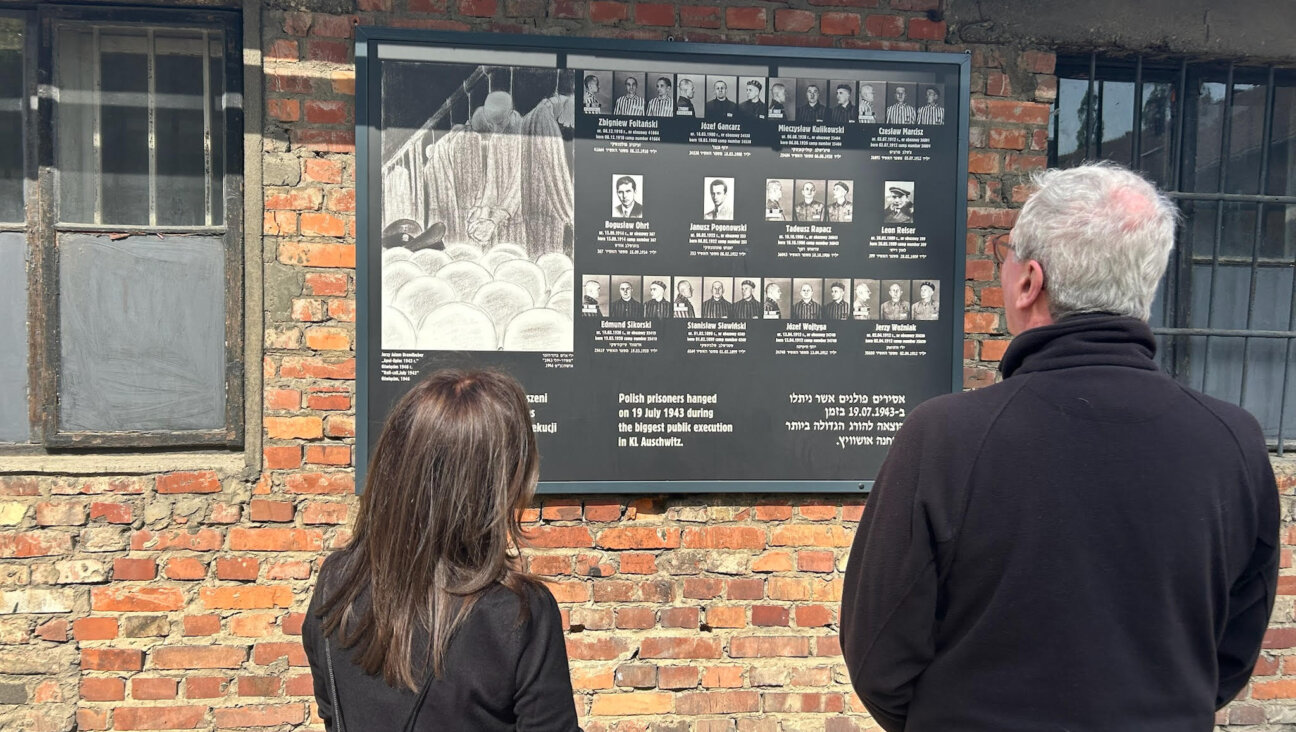
Fast Forward On his first trip to Auschwitz, New Jersey governor urges vigilance against rising antisemitism
-

Fast Forward Survivors of the Holocaust and Oct. 7 embrace at Auschwitz, marking annual March of the Living
-

Fast Forward Could changes at the FDA call the kosher status of milk into question? Many are asking.
-
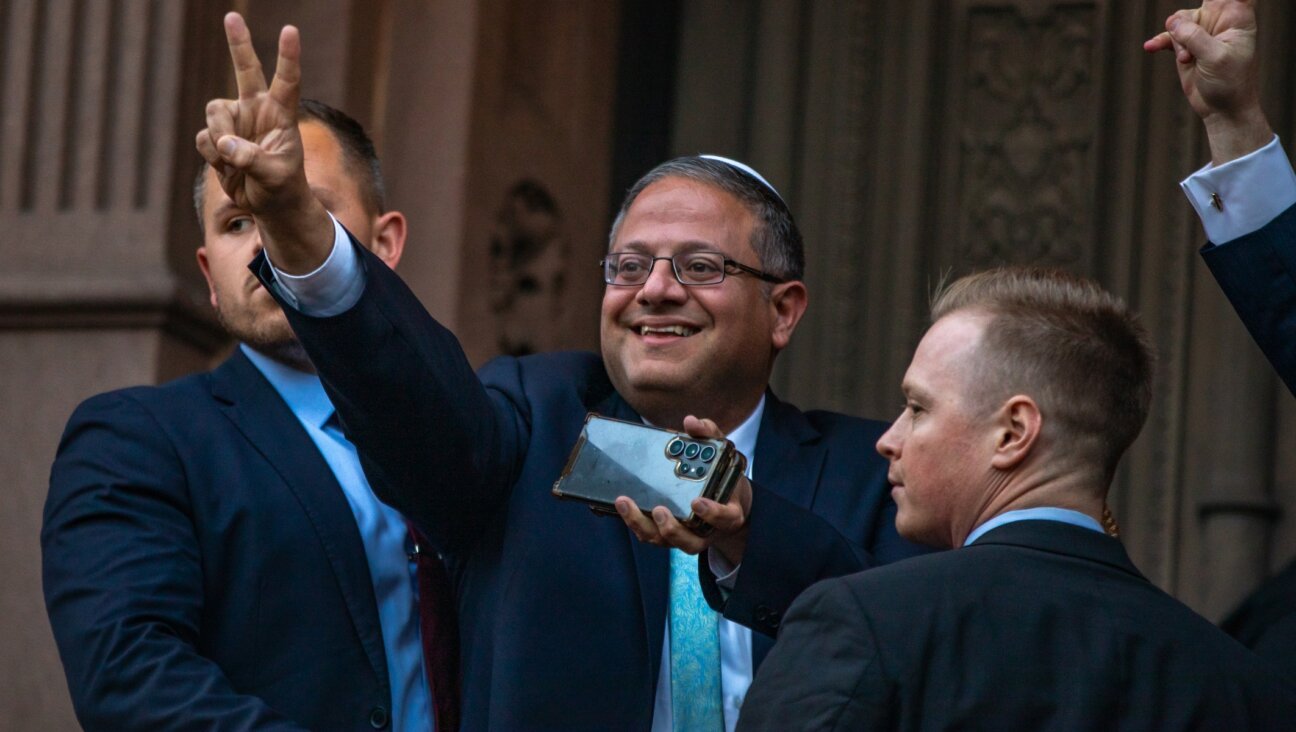
Fast Forward Long Island synagogue cancels Ben-Gvir talk amid wide tensions over whether to host him
-
Shop the Forward Store
100% of profits support our journalism
Republish This Story
Please read before republishing
We’re happy to make this story available to republish for free, unless it originated with JTA, Haaretz or another publication (as indicated on the article) and as long as you follow our guidelines.
You must comply with the following:
- Credit the Forward
- Retain our pixel
- Preserve our canonical link in Google search
- Add a noindex tag in Google search
See our full guidelines for more information, and this guide for detail about canonical URLs.
To republish, copy the HTML by clicking on the yellow button to the right; it includes our tracking pixel, all paragraph styles and hyperlinks, the author byline and credit to the Forward. It does not include images; to avoid copyright violations, you must add them manually, following our guidelines. Please email us at [email protected], subject line “republish,” with any questions or to let us know what stories you’re picking up.







